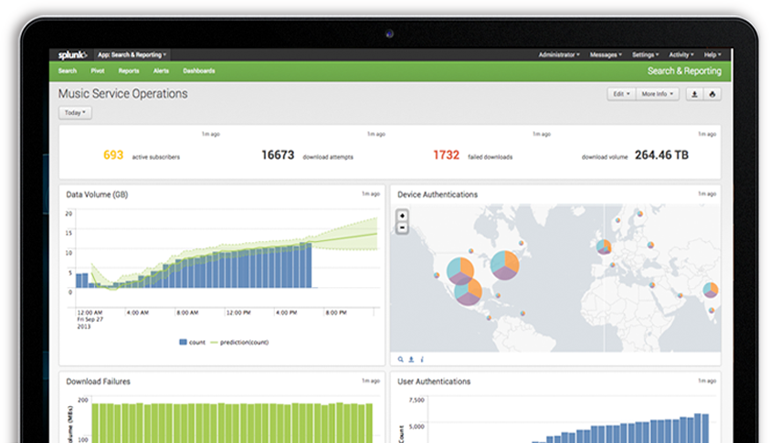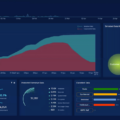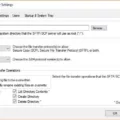In today’s data-driven world, businesses need reliable log management and analytics solutions to keep their operations running smoothly. And while there are a number of options on the market, two of the most popular are Sumo Logic and Splunk. Depending on your needs, one may be a better choice for you than the other. Let’s take a closer look at both solutions to help you decide which is right for you.
When it comes to ease of use, Sumo Logic takes the cake with less of a learning curve than Splunk. Sumo Logic offers premium security and log management without requiring significant time investment in training or setup. On the other hand, Splunk’s SPL search engine is extremely powerful but adds many layers of complexity that smaller businesses may not need to utilize, making it more difficult to use and manage in comparison to Sumo Logic.
In terms of features, both solutions offer similar capabilities such as collecting logs from multiple sources and transforming them into actionable insights via easy-to-understand visual elements like charts and tables. However, Sumo Logic boasts several additional features such as predictive analytics which can help identify potential issues before they become full-blown problems, and prebuilt dashboards which make monitoring processes much easier. Additionally, its AI capabilities allow for automated log analysis which can save valuable resources in terms of time and money.
When it comes to pricing models, both services offer various options depending on your needs ranging from free trial versions all the way up to enterprise plans tailored for larger organizations. While some plans offered by Splunk are slightly cheaper than those offered by Sumo Logic, the latter does offer more value for money in terms of features included with each plan so it’s worth doing a thorough comparison before making your decision.
At the end of the day, both solutions have their strengths and weaknesses so it really comes down to what your organization needs when choosing between them. For those looking for an easy-to-use solution with additional predictive analytics capabilities at an affordable price point then Sumo Logic may be the better option while those looking for advanced search engine power should go with Splunk instead. Whichever you choose though you can rest assured that every solution will provide reliable service that will help ensure your business runs smoothly in today’s fast-paced data-driven world.

Comparing Sumo Logic and Splunk: Which is Better?
Sumo Logic and Splunk are both powerful log management and security tools, but they are designed for different types of organizations. Sumo Logic is better suited for smaller businesses that don’t need the full range of features found in Splunk. It has a far less steep learning curve, so businesses can quickly get up and running without having to spend extensive amounts of time training staff. On the other hand, Splunk provides a more comprehensive feature set that larger organizations may find necessary, but with a more complex SPL search engine that requires additional time invested in understanding how to use it properly. Ultimately, the decision between Sumo Logic and Splunk should be based on your organization’s individual needs and capabilities.
Comparing Sumo Logic and Splunk
Yes, Sumo Logic is like Splunk in that it takes an organization’s machine-generated data feeds and transforms them into actionable insights. Sumo Logic does this by taking the data and displaying it in easy-to-understand charts, tables, and other visual elements so users can quickly identify trends and correlations. Additionally, both Splunk and Sumo Logic offer automated alerting, real-time log search capabilities, and the ability to analyze large volumes of data simultaneously. However, there are some differences between the two technologies. For example, Sumo Logic has a more intuitive user interface which makes it easier for users to set up their environment and get started quickly, while Splunk offers a more powerful platform for advanced analytics and custom integrations. Ultimately, however, both tools provide organizations with valuable insights into their machine-generated data streams.
Does Amazon Utilize Splunk?
Yes, Amazon uses Splunk for its cloud-based, analytics-driven security information and event management (SIEM) solution. The solution enables Amazon’s security team to detect and respond to ransomware and other issues in real-time. By leveraging Splunk’s technology, Amazon is able to get deep visibility into its security events across the entire infrastructure. This visibility allows Amazon to identify and address any potential threats quickly and efficiently. With Splunk’s help, Amazon is able to protect its customers from cyber attacks while providing an exceptional customer experience.
Disadvantages of Using Splunk
Splunk is a powerful and popular data analytics tool, however, it does have some drawbacks. Firstly, Splunk can be quite expensive for large data volumes. Additionally, depending on the size of the data sets being searched, it can be difficult to optimize search speed. It also may not be as reliable as other tools due to its complexity and the potential for errors. Lastly, there is high competition from competitors offering similar services with lower prices or better features.
Is Investing in Sumo Logic a Good Decision?
It is difficult to say whether Sumo Logic is a good buy at this time. The stock has a 73.79% upside potential, according to the average price target of analysts, which suggests that it could be a good long-term investment. However, as with any stock, there are risks associated with investing in Sumo Logic. It is important to research the company’s financials and assess its current performance before investing. Additionally, you may want to review the analysts’ ratings for Sumo Logic and take into consideration any other factors that could affect its performance in the future. Ultimately, only you can decide if Sumo Logic is the right buy for you.
What Database Does Sumo Logic Utilize?
Sumo Logic uses a proprietary database that is purpose-built for log and metric data. This database is optimized for ingesting, indexing, and analyzing large amounts of data in real-time. It includes support for high availability and scalability, as well as a host of additional features to help you get the most out of your Sumo Logic experience. Additionally, Sumo Logic has integrated with popular relational databases such as PostgreSQL to provide extra insights into your data.
Conclusion
In conclusion, Sumo Logic and Splunk are both powerful log management and security solutions for businesses of all sizes. While Splunk’s SPL search engine offers more advanced features, it can be difficult to learn and navigate. On the other hand, Sumo Logic has a much shorter learning curve and provides easy-to-understand visualizations of data. Both services offer a variety of competitors and alternatives with similar features. Ultimately, it comes down to individual business needs when deciding which log management solution is right for them.








